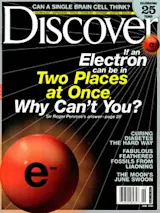Hormone Rarely does a word have an official birthday, much less a centennial celebration. But medical professionals are taking note of the 100th anniversary of hormone, which was dropped into the English language on June 20, 1905, by Ernest Starling, a professor and physiologist at University College London. He introduced the word during a lecture to the Royal College of Physicians of London: “These chemical messengers, however, or hormones . . . as we might call them, have to be carried from the organ where they are produced to the organ which they affect by means of the bloodstream.” It was an overdue moment. Endocrinologists had been trying to describe such chemical messengers as adrenaline and secretin as “products of the glands” or “internal secretions” for years, but none of the terms stuck. Since Starling’s speech, scientists have discovered at least 50 more hormones, including testosterone, estrogen, and insulin.
Delineations
Celebrate the 100th anniversary of hormones, a term introduced by Ernest Starling to describe vital chemical messengers in our bodies.
More on Discover
Stay Curious
SubscribeTo The Magazine
Save up to 40% off the cover price when you subscribe to Discover magazine.
Subscribe













